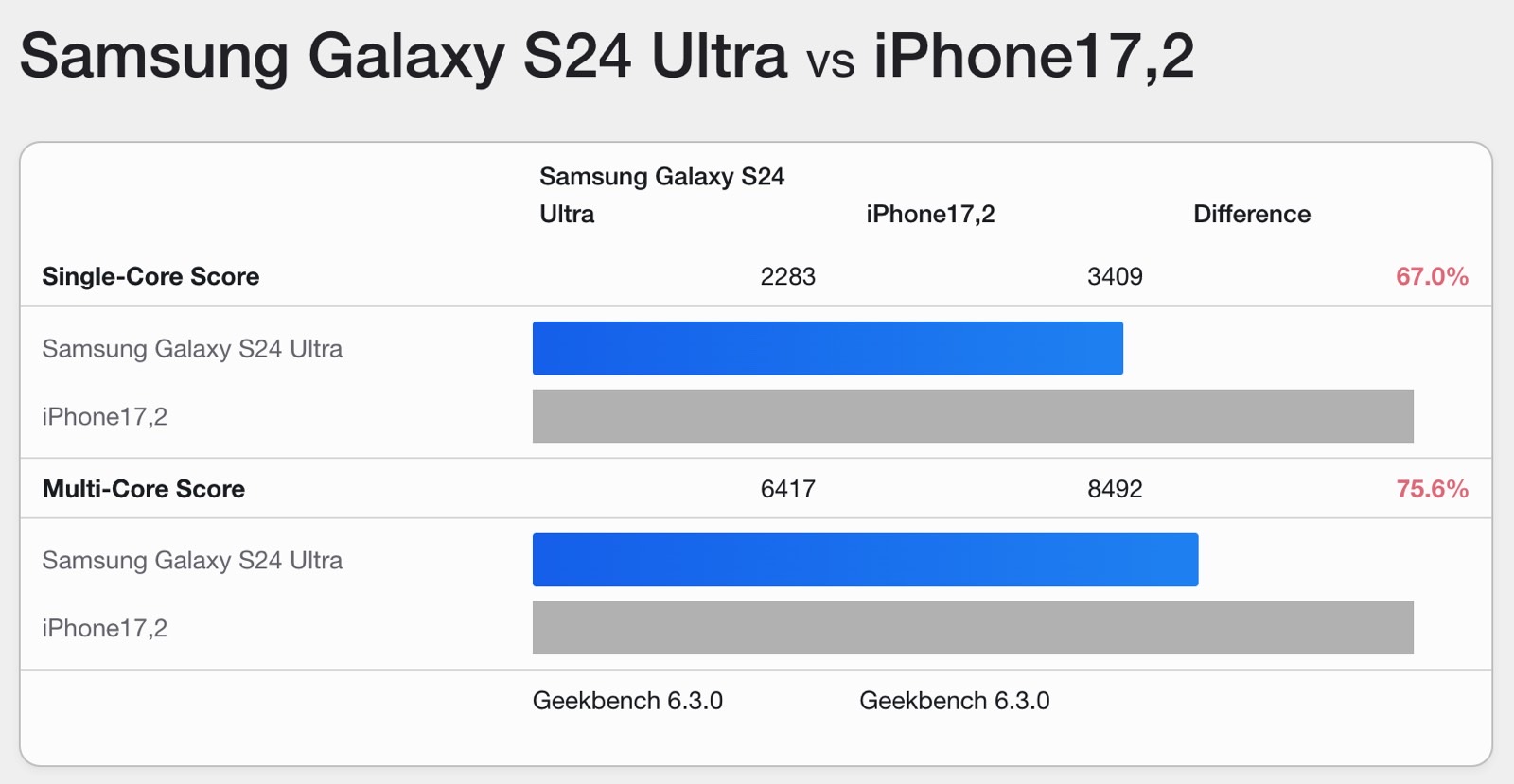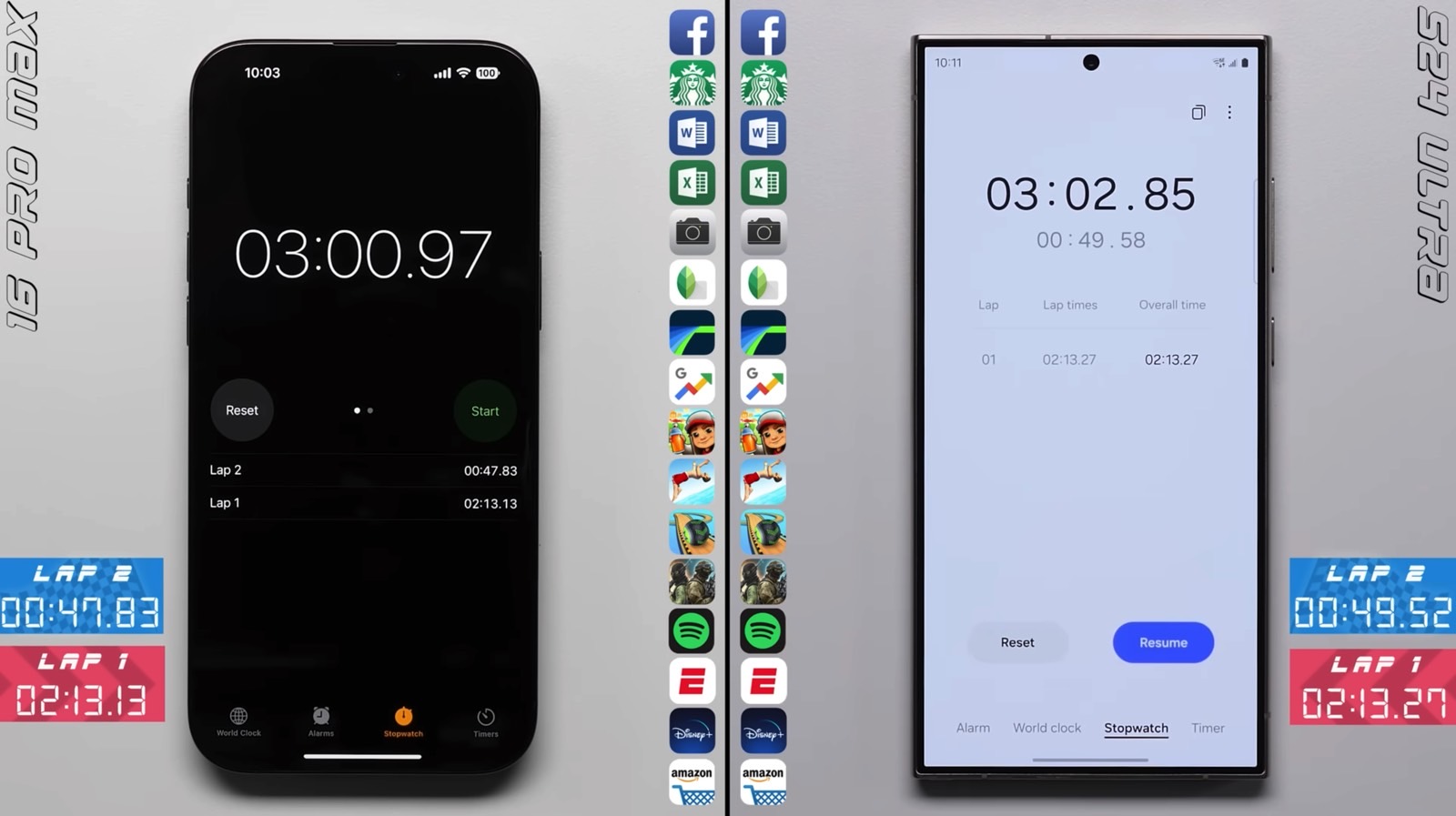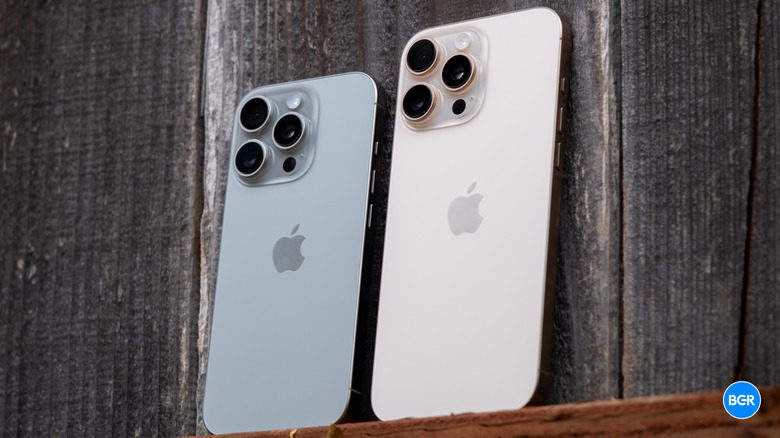iPhone 16 Pro Max Vs. Galaxy S24 Ultra Speed Test: Exactly What You Expected
When Apple unveiled the iPhone 16 series in early September, the company introduced the A18 Pro chip as "the fastest CPU in any smartphone." The A18 chip that powers the non-Pro iPhone 16 models has to be almost as fast.
But I knew going into the Glowtime event that I would not buy an iPhone 16 Pro this year. Instead, I chose the iPhone 16 Plus, with the A18 Pro's chip being the least of my worries. I wanted a larger screen, better battery life, Apple Intelligence, and the Camera Control button.
I took the iPhone 16 performance for granted, trusting the A18 would be a great upgrade from the iPhone 14 Pro's A16 Bionic. It would be an upgrade that I wouldn't notice when it comes to speed. Instead, I counted on it to deliver fast AI and improved energy efficiency.
A few weeks later, I don't have Apple Intelligence because it's not out yet, and Europe will have to wait even longer. However, the iPhone 16 Plus battery is as good as I had hoped.
Also, we finally have a speed test involving the iPhone 16 Pro Max and Galaxy S24 Ultra to determine which phone is the fastest. The results are incredibly predictable for the current state of the mobile industry.
The iPhone 16 Pro Max benchmarks prove that Apple is right to label the A18 Pro chip as the fastest in the industry. The Galaxy S24 Ultra can't match it, and neither can any other 2024 Android flagship. But as I keep telling you, benchmarks won't tell you the full story.

The Galaxy S24 Ultra might not perform as well in those benchmarks, but you won't realize it is slower in real life than the iPhone 16 Pro Max, if that's even the case. You'd have to use both devices to see the differences, if any.
Also, the most important thing to remember is that most smartphone users won't need that top performance. I count myself in that group. I don't play graphic-intensive games, nor do I need the top processing power that the A18 Pro can deliver. Put differently, I could have easily kept using the iPhone 14 Pro without skipping a beat.
This brings me to one of my favorite speed tests for new smartphones, the one that PhoneBuff runs for all-new flagship releases. The newest version of the comparison involves The iPhone 16 Pro Max and the Galaxy S24 Ultra.
As I said before, the results are predictable. What I meant by that is that the iPhone would surely win. But it will only "win" by a very small margin, considering how incredibly fast mid-range and flagship phones have become—so small that it doesn't even matter.

As you can see in the screenshot above, the iPhone 16 Pro Max and Galaxy S24 Ultra finished the first round almost simultaneously. In the second round, the iPhone beat the Galaxy phone by a couple of seconds.
The results mimic the iPhone 15 Pro Max vs. Galaxy S24 Ultra speed test from earlier this year, but they're even closer. The Galaxy S24 Ultra has benefited from software optimizations since its launch, so the performance boost is understandable.
What do those rounds mean, and how do they replicate real-life use? Well, the first lap consists of each phone opening the same suite of apps for the first time. Some apps are simple apps that don't require lots of processing. Others are more taxing for the CPU, and the list includes games.
The first round is the one that matters, and the iPhone almost always wins this round. The iPhone 16 Pro Max did it, too, but the margin is in the milliseconds.
The second lap consists of opening the same apps from RAM. The iPhone 16 Pro Max has 8GB of RAM, while the Galaxy S24 Ultra features 12GB. The iPhone wins by less than two seconds here, showing that iOS 18 is more optimized than Android 14. It could get slightly better.
What PhoneBuff does with these tests is to replicate real-life use. We open apps all the time and move from one app to the next. Some stay in memory, others don't. That's the speed we care about, being able to get quickly from one app to the next and have the smartphone do whatever we need it to do.
The speed test shows you would not be wrong to buy either device if you need a fast flagship and don't care about the operating system. That said, the Galaxy S24 Ultra's successor is some three months away. That model will feature a slightly faster chip, the Snapdragon 8 Gen 4.
